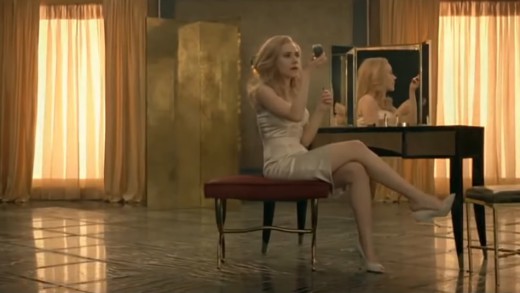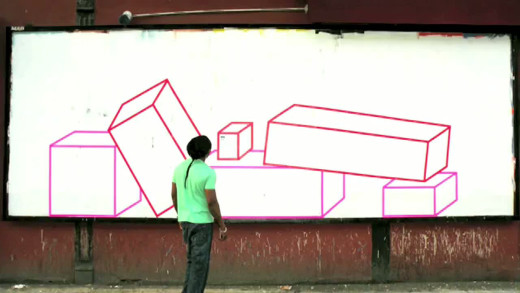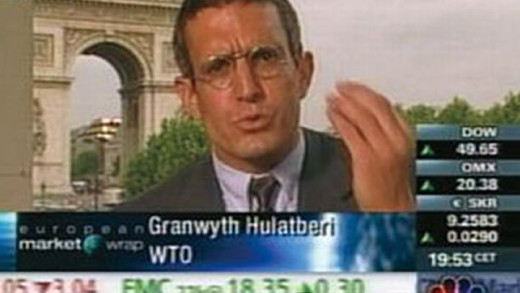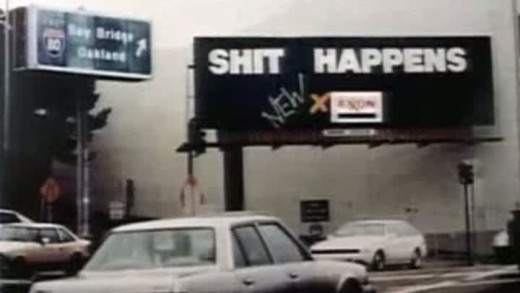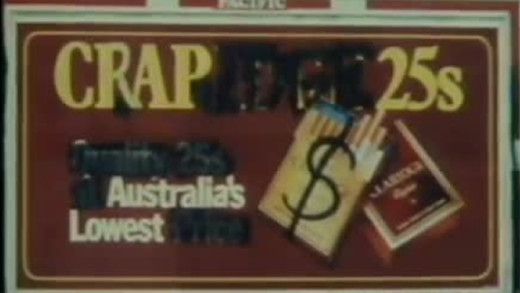The Society of the Spectacle is a film based on the 1967 book of the same name by French political theorist and philosopher, Guy Debord. The work traces the development of modern society, in which Debord argues that authentic social life has been replaced with representations, and that the history of social life can be understood as "the decline of being into having, and having into merely appearing." This emerges from and gives rise to a pervasive and all encompassing spectacle in which relations between commodities have supplanted relations between people, in which "passive identification with the spectacle supplants genuine activity." The film weaves the text of the original book with modern-day imagery, illustrating many elements of the spectacle, including that "the spectacle is not a collection of images, rather, it is a social relation among people, mediated by images." This makes the material hard to decipher at times, especially with conflicting subtitles between languages: but this is part of Debord's goal, to "problematise reception" and force the viewer to be active rather than passive. In addition, the words of some of the authors are "détourned" (hijacked) through deliberate misquoting. The result is a foundational work on the concept of the spectacle and its characteristics, to encourage critical thinking, to build and extrapolate critiques to apply to the wider social scale.
My Public Space is a short film following a local artist in New York City, documenting the effort to reformat the visual pollution of advertising into public artwork spaces...
What Would Jesus Buy is an examination of consumerism with a specific focus on Christmas in America. The film follows culture jamming outfit 'Reverend Billy' from the Church of Stop Shopping and the gospel choir which embark on a cross-country mission to "save Christmas from the Shopocalypse". Also discussed on the way are related issues such as the role sweatshops play in America's 'Big-Box' shopping culture. From the humble beginnings of preaching at his portable pulpit on New York City subways, to having a 'congregation' of thousands, Bill Talen (Rev. Billy) has inspired not just a 'church', but a national culture jamming movement...
The Yes Men are a culture-jamming activist-duo from the United States that are known for their impersonations of entities that they dislike as a form of protest. Using spoofed personas, they spread awareness of problematic social issues through the mainstream media. The two have also created and maintained fake websites, which have even led to numerous interviews, conferences, and TV invitations for their spoofed personas to espouse the truth about just how corporations and governmental organisations often act in dehumanising ways toward the unwitting public. In this film, we see how the two Yes Men take on the World Trade Organisation and confront the brutal realities of globalisation using satire and tactical media to get their message across, culture-jamming the corporate interest.
Culture Jam documents a movement against advertising and the repurposing of commercial messages by following pranksters and subversive artists as they hijack, subvert and reclaim corporate media space in the battle of public 'mind-share' dominated by the consumer culture. Stopping in San Francisco, New York's Times Square and other parts of the United States, Culture Jam documents some jamming in action—armed with everything from DIY anti-ad stickers, custom neon, to the art of performance and guerilla film screenings—to illustrate just some of what people can do to push back against the saturation of commercial media messages in public space.
The War of Words Down Under documents an insight into the radical campaign of the 1980s to ban advertising and promotion of cigarettes in Australia. The result is a movement of culture-jamming activists called B.U.G.A. U.P. or Billboard Utilising Graffitists Against Unhealthy Promotions; who deface, disrupt, remove and challenge smoking promotions and advertising wherever it appears—in shopping centres, sports fields, billboards, etc. The movement starts in inner-city Sydney in October 1979, later spreading to Melbourne, Hobart, Adelaide and Perth; with many of the members coming from professional backgrounds, including doctors and health workers. This film shows how direct-action can provoke and achieve social and political change, albeit a slow process, with success for this movement coming almost a decade later...
